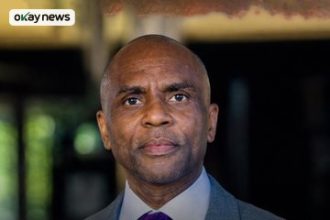Nigeria’s new fiscal reform law has officially brought virtual currency transactions under the tax net, marking a significant shift in how digital assets will be regulated and taxed nationwide.
The update was confirmed by Taiwo Oyedele, Chairman of the Presidential Fiscal Policy and Tax Reforms Committee, during an online public lecture hosted by the Capital Market Academics of Nigeria (CMAN) on Wednesday, November 19, 2025.
Oyedele explained that the revised framework recognises virtual currencies—including cryptocurrencies—as taxable assets. He noted that these digital forms of value, issued by private developers or online communities, have become significant economic instruments and must now be reflected in Nigeria’s tax structure.
He clarified, however, that despite the inclusion of virtual currencies, capital market gains remain exempt from taxation. This exemption, he said, presents a strategic opportunity to encourage young investors to channel funds into regulated financial markets rather than speculative digital assets.
“Virtual currency under the new law is liable to tax. Capital market gains for virtually everybody are exempted,” Oyedele explained, urging financial educators and regulators to counter widespread misinformation.
According to him, persistent myths—such as the false claim that capital market investments attract a 30% tax—have discouraged many young people from investing in regulated markets. He warned that such misinformation fuels poor financial decisions and creates distortions that harm investors in the short term.
Oyedele also highlighted new provisions requiring the government to set aside funds for tax refunds, ensuring the system is more transparent and capable of honouring legitimate claims. This reform, he said, prevents the practice of allocating all generated revenue without accounting for refund obligations.
To expand nationwide understanding of the new tax rules, the committee is collaborating with the National Orientation Agency (NOA) to translate the legislation into local languages. The goal is to improve grassroots awareness of taxpayers’ rights, obligations, and opportunities within the reformed system.
He added that Nigeria has entered into information-sharing agreements with over 100 countries to track the income of remote workers, ensuring tax compliance within the growing digital economy. Regardless of employer or location, every Nigerian remote worker is required to declare income independently.
As implementation unfolds, policymakers expect the reforms to strengthen revenue administration, enhance investor confidence, and support Nigeria’s broader transition to a modernised tax environment.







